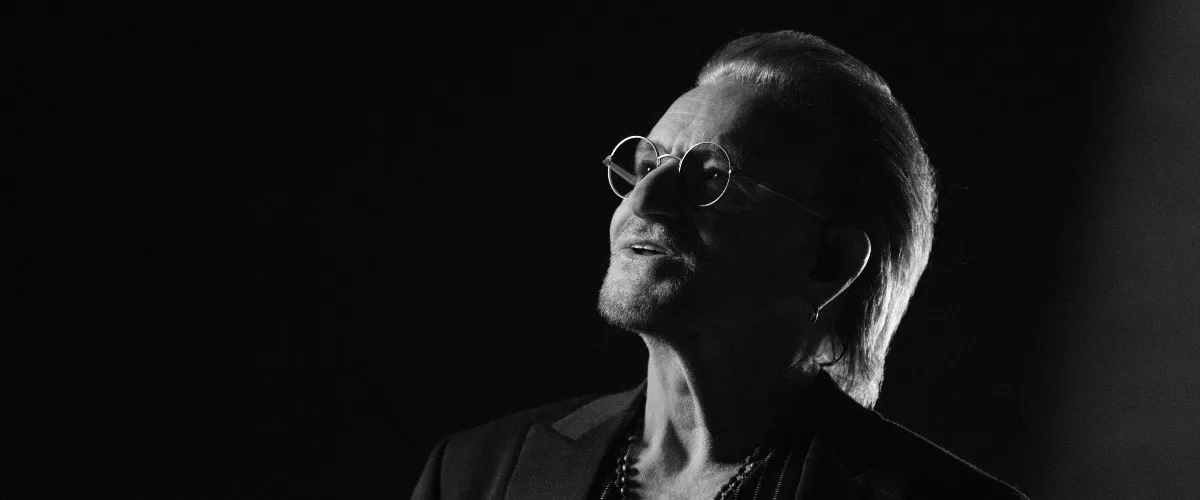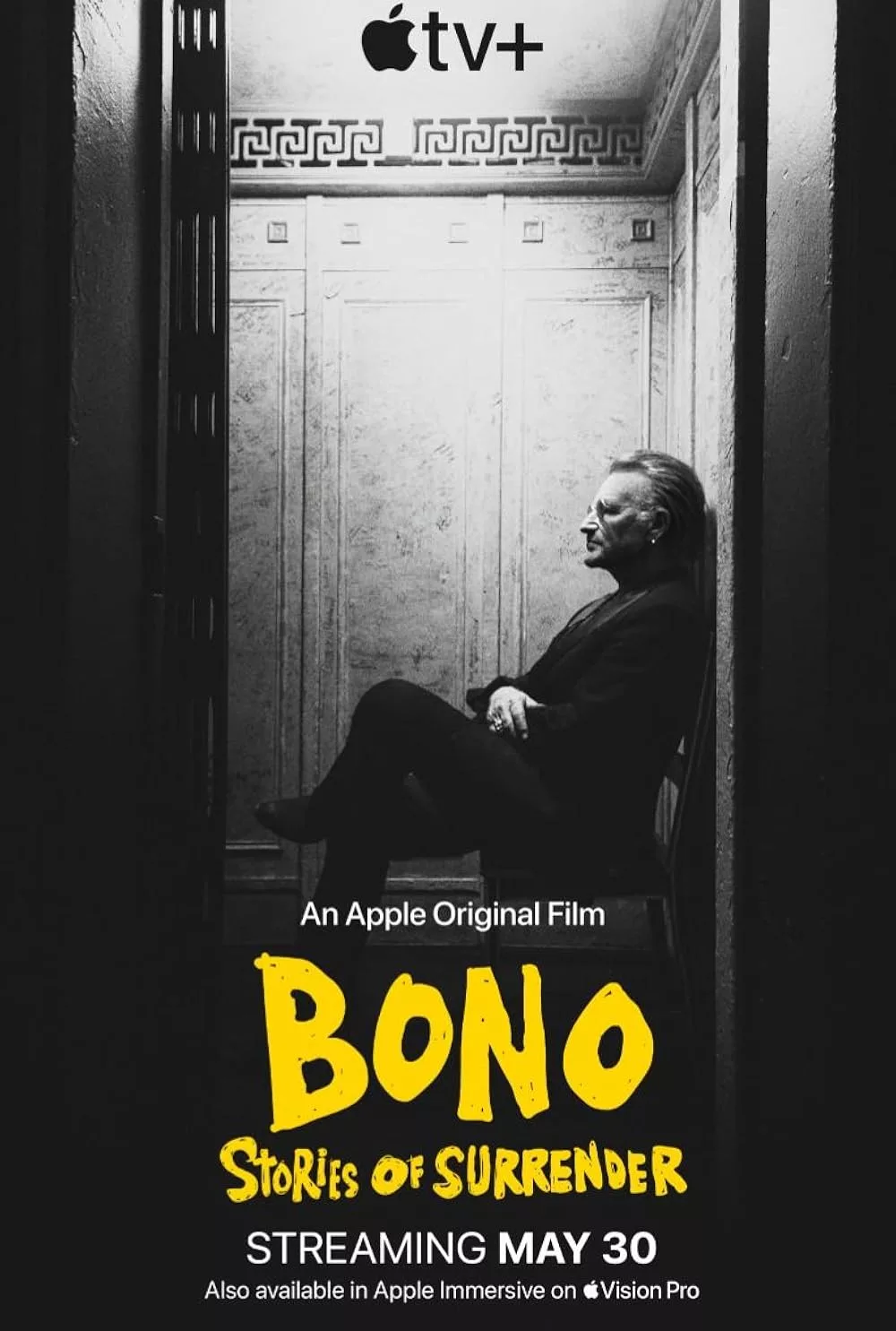At the outset of “Bono: Stories of Surrender,” a documentary and concert film staged by the famed singer of U2, the frontman admits that a memoir may be the highest form of navel gazing. Filmed in New York City’s Beacon Theater during the 2023 run of Bono’s one-man show—itself inspired by his autobiography Surrender: 40 Songs, One Story—the singer combines a staple of megahits with personal memories to tell how he grew from Paul Hewson into one of rock music’s biggest titans. Despite that lofty goal, the frontman doesn’t delve into the excesses of stardom or even his band’s legendary live shows. Instead, he attempts to humble himself by castigating his motives, pursuits, and desires in a tidy 86-minute film that could actually stand to be longer.
Directed by Andrew Dominik, “Bono: Stories of Surrender” is best when the vulnerable frontman sings stripped-down versions of his band’s jukebox melodies, timed to Dominik’s behind-the-scenes takes, which dissect the film’s glossy presentation. During the documentary’s tight runtime, not enough of the latter is done, making the documentary feel cloying during its many conventional spells.
Still, the refined aesthetic Dominik and his DP Erik Messerschmidt (“Ferrari”) instill in these performances is an immediate and continuing draw. The rich black-and-white photography brings out the chiaroscuro lighting, allowing Bono and his musicians to become silhouettes—an effect that provides both mythical imagery and a sense of timidity to a singer who’s always enjoyed a bright spotlight. The staging here is sparse: a cellist, a harpist, a drummer, and an entire backboard of LED lights is positioned behind the performers. The sounds they provide are affecting and full.
If you have attended any of Bono’s one-man shows, you should already know this, but don’t go in expecting to hear deep-cut U2 songs (sorry, Zooropa fans). Rather, the big hits are played: “Pride,” “Desire,” “With or Without You,” “Sunday Bloody Sunday,” and more have an unflinching tenderness by Bono that only increases due to surprising vocal and instrumental choices. The film kicks off with a performance of “Vertigo” that leads into Bono recalling a near-death experience in 2016 when a blister was found on his aortic valve. “How did I get here?” he asks. As you can guess, we will follow his memories back to his childhood and his parents. The death of his mother, Iris, left a hole in his heart; his complicated relationship with his father, Bob, nearly left another hole in his spirit.
The singer traces much of his angst, as most young men do, to that tempestuous relationship with his dad. A lover of opera—the frontman recalls as a kid watching his father mime conducting “La Traviata.” His father, unfortunately, saw very little artistry in his son, fueling Bono to sing louder, if only to be heard. Along with the musicians, the stage features a table and five chairs. The chairs, in particular, allow the singer to stage other parts of his life. A comfy seat opposite Bono is left empty so the singer can recall, reenact, and relitigate past conversations with his dad. The other seats serve as stand-ins for his bandmates, as he describes meeting the Edge, Adam Clayton, and Larry Mullen Jr. for the first time. Bono doesn’t necessarily delve into the band’s dynamic. His lone comment amounts to everyone in the band having such an equal say that each one thinks they’re the actual leader. Instead, he remains keyed in on a personal journey that forced him to put himself in his father’s shoes.
The singer’s reflectiveness also seeps into the film’s language. At one point, Bono calls out a fourth-wall break that overlays his internal monologue with a performance of “Desire.” During a section called “The Third Act,” we watch Dominik block out Bono’s return to the stage post-intermission. These moments are so enlivening that you wish the film stylistically blurred more boundaries between presentation and openness. Bono’s thoughts on his career take a similar form. At one point, he says something akin to: Motivations aren’t important. What matters is the result. Still, he quickly questions his own impulses. He wonders aloud about his intertwining of social causes—his pro-Africa, anti-poverty stances—and the praise he receives for taking them. He also critiques his pursuit of greatness, which gave him tunnel vision even as his wife, Ali Stewart (a significant presence in his stories), tried to keep him grounded.
Those grounded moments keep this documentary from devolving into a vanity project. And while the autobiographical elements are incredibly light, there’s enough humility here to make the viewer surrender to the film’s melodic charms.




















